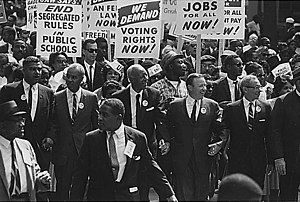There is something fascinating about what moral suffering can do to someone who is in no obvious way a weak or feeble person. It's more insidious even than what physical illness can do, because there is no morphine drip or spinal block or radical surgery to alleviate it. Once you're in its grip, it's as though it will have to kill you for you to be free of it. Its raw realism is like nothing else (12).

Just finished reading a gift (The Human Stain by Philip Roth) from a good friend. For whatever reason, I recorded a few passages I want to remember. Here's the opening of the novel (from Oedipus The King):
OEDIPUS: What is the rite of purification? How shall it be done?
CREON: By banishing a man, or expiation of blood by blood...
@ The Hideout last night. They made me believe! Alan Sparhawk played like he had something to prove. Or else he was just in one of his manic episodes.

I saw a flag wave in the heavens over me
I saw the Virgin and for a moment I believed
You said you'd save me
But I don't want to be saved
I just want to be loved, and to love, always
But the words they were not mine
I heard you crying and for a moment
I could see
You said you'd save me but I don't want to be saved
I just want to be loved, and to love, always And it's OK, I know what's confusing me
I know what I want to see
And I know where I want to be
And an angel was flying next to me
No hesitation
For a moment I was free
You said you'd save me
But I don't want to be saved
I just want to be loved, and to love, always Trying to lighten the mood on the Song Pong with a little R & R (religion and romance). This is from Shea Seger's debut, The May Street Project (2000). I believe I am the only person in the country that still owns a copy of this CD. Want proof? You can walk into any used CD store in America and find it for $0.99 or lower. She was only 20 years old, from Texas, and moved to London to record this at the same time Britney Spears was all the rage — and the album tanked. The production (by Martin Terefe) is so much fun on this record -- and it's all over the place, too. Each song is in a different style, and though this duet relies heavily on the amazing pipes of Ron Sexsmith, Shea can belt out the tunes like a Rickie Lee Jones when the mood calls for it.
Now that I've met you
would you object to
never seeing each other again
cause I can't afford to
climb aboard you
no one's got that much ego to spend
because I've got troubles enough
no, don't pick on me
when one act of kindness could be
deathly
deathly
definitely Cause I'm just a problem
for you to solve and
watch dissolve in the heat of your charm
but what will you do when
you run it through and
you can't get me back on the farm So don't work your stuff
because I've got troubles enough
no, don't pick on me
when one act of kindness could be
deathly
deathly
definitely You're on your honor
cause I'm a goner
and you haven't even begun
so do me a favor
if I should waver
be my savior
and get out the gun Just don't work your stuff
because I've got troubles enough
no, don't pick on me
when one act of kindness could be
deathly
deathly
definitely Apart from the devastating impact of the first three lines, I have always admired the production of this song by Aimee Mann. It was first heard in 1999 on the soundtrack of Paul Thomas Anderson's Magnolia, but then later re-recorded for Mann's unmatched Bachelor No. 2, in 2000. There are two aspects of the song production I want to highlight.
- The soaring guitar solo. I can admit that I have broken my unspoken rules of listening to unbroken albums, and have actually skipped right to this song. Hell, I have even gone so far as to skip to the solo, just to figure it out. I know it's an electric guitar, but the near infinite sustain made me think of strings or synth. However, according to the song credit, it's both: Scientologist Michael Lockwood plays the guitar, and the solo is matched, note for note by Patrick Warren on the keyboards. It's a brilliant idea as the two are similar but different enough to be slightly out of tune with each other.
- The fade-out ending. When sequencing an entire CD, artists always have to make these difficult decisions. Oftentimes, the fade-out is a sign of a weak song: no one has a clue how to end it, so it's mercifully cut short. But this song exhibits the strength of the fade-out: listen to the guitar/synth solo in the outro — at the fade-out the synth clone drops and all that's left is the electric guitar. But the guitarist is just getting started: you can feel that he can elaborate on the solo for another 8 measures, at least, but the mixer, most likely Bob Clearmountain has made the tough decision — he cuts this way short, making you want more. I think this is the reason I keep coming back to this song.
 Image via Wikipedia
Image via Wikipedia


